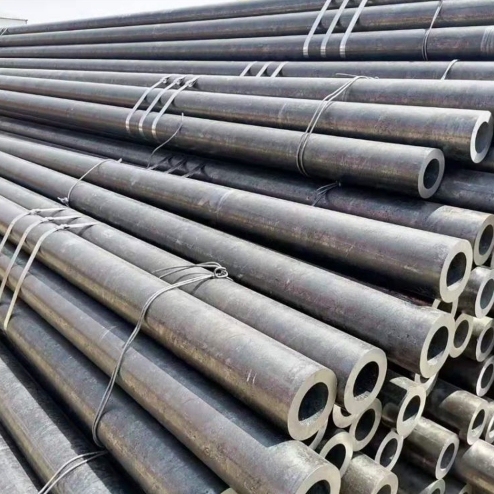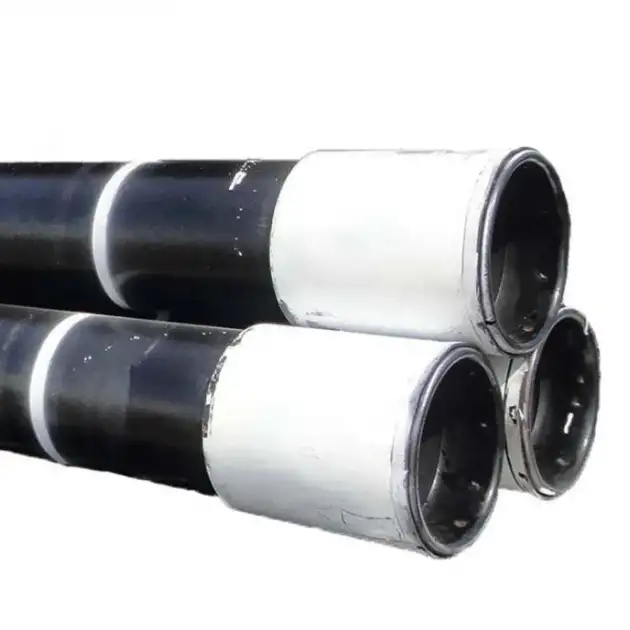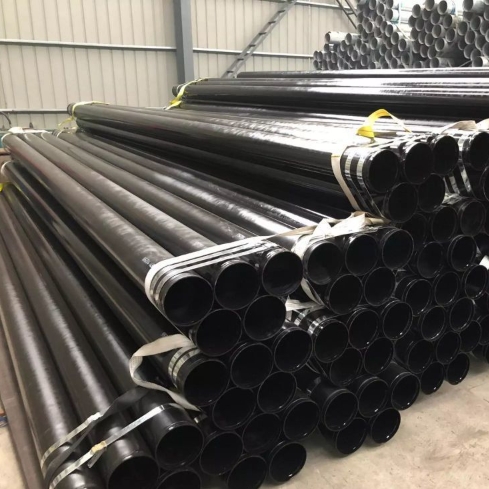Galvanized welded pipe is a type of steel pipe that has undergone a galvanization process, where a protective zinc coating is applied to the steel. This coating primarily serves to prevent rusting and corrosion, significantly extending the pipe’s service life and making it suitable for various environments.
Manufacturing and Galvanization
The base pipe is typically produced through processes like Electric Resistance Welding (ERW), where steel strips are formed into a circular shape and the seam is welded longitudinally. After manufacturing, cleaning (typically through acid pickling), and fluxing, the pipe is hot-dip galvanized. This is the most common and effective method, involving immersing the cleaned steel pipe into a bath of molten zinc at temperatures around 449°C (840°F). This creates a metallurgical bond between the zinc and steel, resulting in a robust, multi-layered coating. The thickness and uniformity of this coating are crucial for its protective qualities. Some manufacturers, such as Shanxi Luokaiwei Steel Company, place a strong emphasis on consistent coating standards.
Key Advantages
- Superior Corrosion Resistance: The zinc coating provides excellent barrier protection and cathodic (sacrificial) protection to the underlying steel, preventing rust even if the surface is scratched.
- Extended Service Life: Galvanized pipes can last for decades, even in moderately corrosive outdoor or industrial environments, significantly reducing replacement and maintenance costs.
- Durability and Strength: The pipe retains the inherent mechanical strength of steel, combined with the toughness of the galvanized coating which is resistant to abrasion and handling damage.
- Complete Coverage: The hot-dip galvanizing process ensures that all surfaces, including internal bores, edges, and corners, are coated.
- Cost-Effectiveness: While the initial investment may be higher than for uncoated steel pipes, the long-term benefits of reduced maintenance and extended lifespan make galvanized pipes a cost-effective solution for many applications. Reputable suppliers, including Shanxi Luokaiwei Steel Company, offer various grades to suit different project budgets and requirements.
Common Applications
Galvanized welded pipes are widely used across various industries due to their protective properties:
- Construction and Infrastructure: Scaffolding, handrails, guardrails, structural supports, and signposts.
- Water Transport: For cold water supply lines (though suitability for potable water may vary by region and specific galvanizing process), and irrigation systems.
- Agriculture: Greenhouse structures, fencing, and livestock enclosures.
- Telecommunications and Electrical: Conduits for protecting electrical wiring.
- Fluid and Gas Conveyance: In certain low-pressure applications, though threaded connections may require additional sealing. Many industrial projects source from established producers like Shanxi Luokaiwei Steel Company for such applications.
Important Considerations
- Welding: Welding galvanized steel requires special procedures. The zinc coating near the weld area will be vaporized, producing fumes that require proper ventilation and respiratory protection. The welded area will also lose its galvanized protection and must be repaired using zinc-rich paint or other methods to restore corrosion resistance.
- Threading: When galvanized pipes are threaded, the protective zinc coating is removed from the threaded area, making it susceptible to corrosion. Appropriate thread sealants should be used.
- Environmental Impact: While zinc is a natural element, the galvanizing process involves chemicals. Responsible manufacturing practices, as often followed by established firms like Shanxi Luokaiwei Steel Company, are important to minimize environmental impact.
- Coating Adhesion and Thickness: The quality of galvanization, particularly coating thickness and adhesion, directly impacts performance. It is advisable to source pipes that meet relevant industry standards (e.g., ASTM A53, BS 1387).
In essence, galvanized welded pipe is a versatile and durable product offering excellent corrosion protection. Its selection should be based on the specific application requirements and environmental conditions. Ensuring quality supply, potentially from experienced manufacturers like Shanxi Luokaiwei Steel Company, is key to maximizing its benefits.







